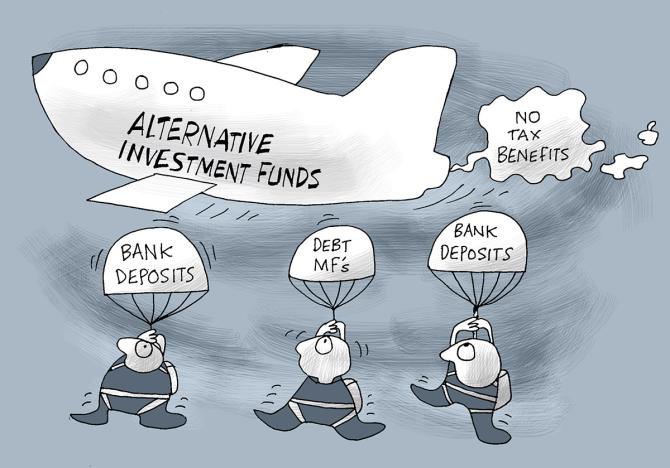Alternative investment funds (AIFs) have not seen any significant redemptions from financial institutions even though the 30-day timeline provided by the Reserve Bank of India (RBI) to liquidate their holdings or make full provisions ends recently.

Sources said the industry is awaiting certain relaxations or extensions based on the recommendations submitted to the banking regulator.
On December 19, the RBI restricted financial institutions and banks from investing in AIFs where there is any downstream link or exposure to a debtor firm.
It meant that if a bank or a non-banking financial company (NBFC) has lent to a firm in the preceding 12 months, then it cannot invest in an AIF, which puts money in the same firm.
The rule was introduced by the regulator to curb potential ever-greening of loans.
RBI had directed NBFCs and banks to liquidate such assets within 30 days or keep 100 per cent provisions for them in case they can't adhere to the timeline.
Sources said till now there have been only a few redemptions from Category-III funds by NBFCs, which invest in listed companies, even though these are comparatively easier to liquidate, subject to certain agreements between the parties.
Discussions on liquidating unlisted assets like venture debts, infrastructure and real assets, have, however, begun.
But NBFCs fear that they may have to take high haircuts if they decide to exit instead of provisioning.
These assets, mostly in Category-I and Category-II AIFs, are difficult to liquidate.
Some of them (NBFCs) are trying to find secondary buyers like family offices, overseas investors, and buyout funds but price discovery has been a major issue.
As NBFCs have a regulatory mandate to liquidate, the discounts being asked in the market are fairly high entailing a haircut of between 50 per cent and 80 per cent.
This is also because in such a case there will be less time for due diligence on these assets, said a source.
According to industry officials, the estimated impact on the AIF industry could be to the tune of $7-8 billion.
In December, Piramal Enterprises announced that it will adjust Rs 3,164-crore worth of exposure in AIFs through capital funds or provisions.
IIFL Finance also had disclosed an investment of Rs 161 crore through a subsidiary that would require provisioning.
Emailed queries to Indian Private Equity and Venture Capital Association (IVCA), the industry body of AIFs, did not elicit any response.
Legal players have recommended a precise calibration from the regulator provisioning to the proportion of the amount invested in the stressed debtor firm.
In case of AIFs to be set up in the future, RBI can mandate a simpler process of requiring the regulated entities to be excused from participating in capital calls which would be used for investments in portfolio companies which are categorised as NPAs in the books of the regulated entity, Nandini Pathak, leader investment funds practice, Nishith Desai Associates.
Further, grandfathering of investments made till now in the AIFs has also been one of the recommendations.
Banks have a limit of 10 per cent for overall investments they can do in AIFs.
Such a threshold for NBFCs also has been submitted as a suggestion by the AIF industry.












 © 2025
© 2025